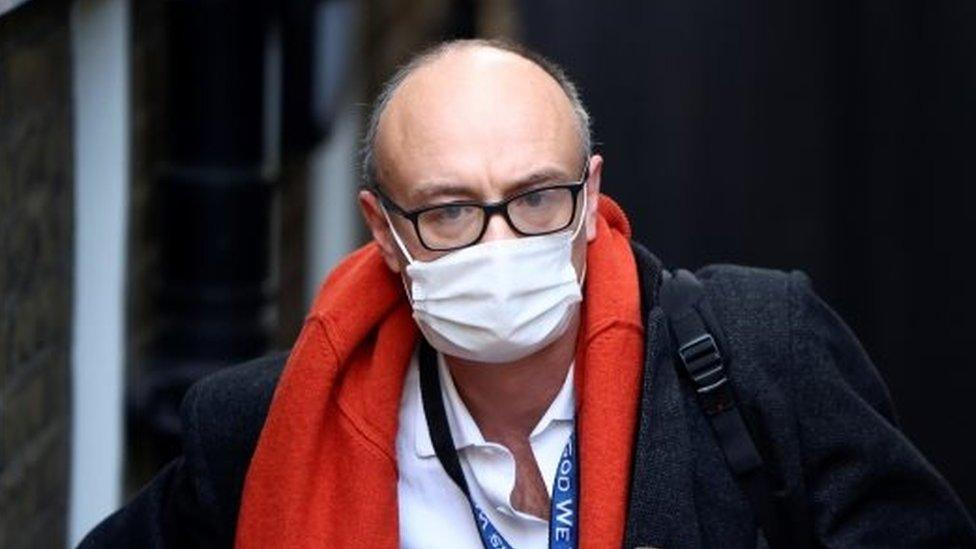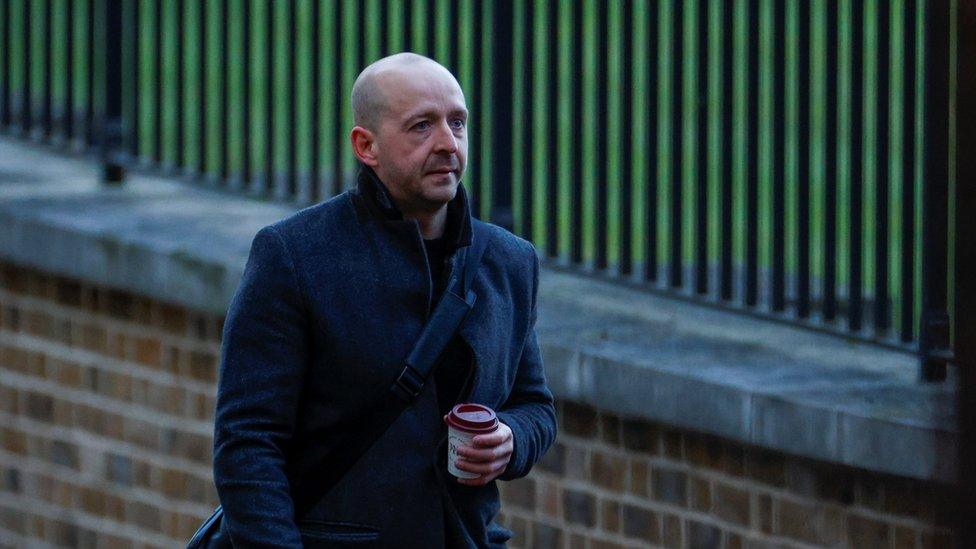Dominic Cummings: What led to top adviser's departure?
- Published

The events of the past 48 hours feel like a political explosion, with Dominic Cummings now departing from Downing Street.
But while it's tempting to see this is as a dramatic and sudden eruption, it has been a longer-term burn.
The prime minister's chief adviser stepped back somewhat from some of the brutal day-to-day politics he had helped create after the election.
He had been spending more time focusing on trying to rewire Whitehall - trying to increase the importance of science and data in government - hoping to be less involved in the moment-by-moment political rush.
But given his profile, and his nature, was that ever a realistic plan?
Since the summer, there have been conversations about shifting some of the senior roles around to make No 10 run more smoothly - including, perhaps, a total exit for Mr Cummings or a different, more specific role.
Campaigning style
But in the Conservative Party, the adviser - who is not a Tory member, which rubs party people up the wrong way in itself - has been a lightning rod for irritation for years, and he became a focus for public rage too after he ignored lockdown rules and drove to Durham.
As the government's handling of the pandemic came under increasing attack, MPs became more convinced day-by-day that there needed to be change in No 10 - with Mr Cummings at the top of the list - and they grew more determined in making that case to Boris Johnson.
Even those who reviled the PM's most senior adviser would acknowledge his strategy - forcing conflicts to win and drawing sharp divides between Leavers and Remainers - was effective.
But as soon as the prime minister had his general election majority, there were concerns that the campaigning style was just too toxic to run a Downing Street operation with different pressures.
Campaigns have to win, governments have to lead and persuade.
Shaping the future
What's burst into the open this week, with all the bitter briefings, is an acceleration of a change that was already coming.
But what it won't change is the personality of the one person, the prime minister, who is meant to be in charge.
Dominic Cummings' many foes absolve the PM of responsibility if they pin all the mistakes and mess on him.
It's up to Boris Johnson now to build a new and more stable team, and shape what happens next.
- Published12 November 2020
- Published12 November 2020

- Published11 November 2020
